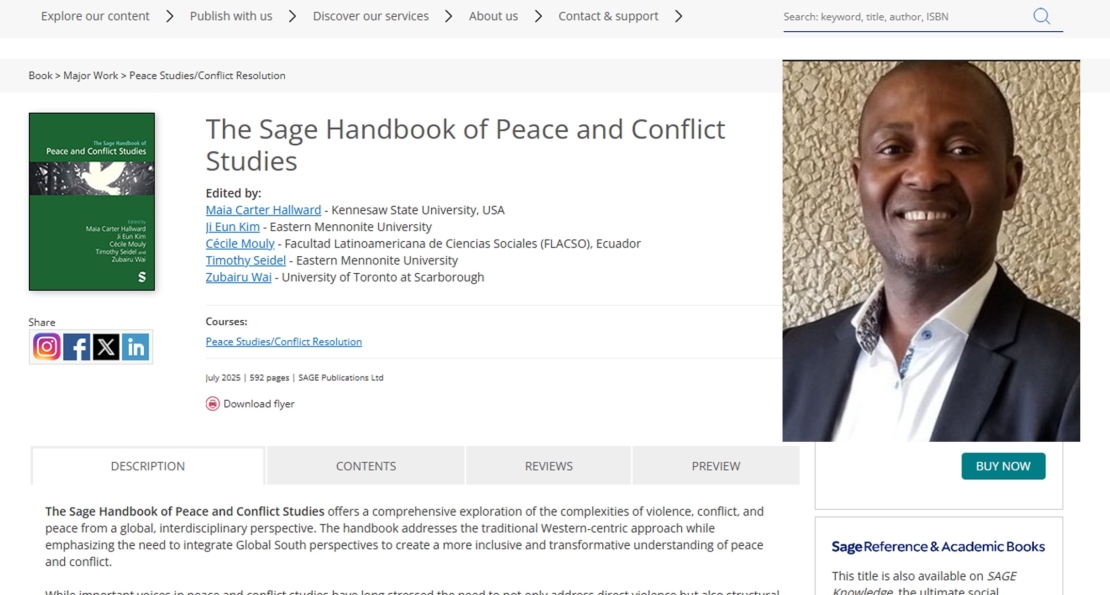In a significant contribution to the field of peace and conflict studies, Dr. Peter Genger, Chair of Political and International Studies at the American University of Nigeria's School of Arts and Sciences, has authored a thought-provoking chapter in The Sage Handbook of Peace and Conflict Studies, published by Sage Publications (UK) in June 2025.
In the chapter, he reviews existing scholarly works to clarify the meaning, origin, rationale and goals of hybrid peace, with the aim of improving general understanding of the concept. Beyond this foundational perspective, Dr. Genger introduces a new and critical debate to the subject by reinterpreting ideas from current literature and arguing that hybrid peacebuilding ultimately envisions indigeneity as its core purpose and intended outcome.
He further contends that this model of peacebuilding goes beyond its traditional description as an inclusive, mixed, multi-dimensional, and flexible approach. Rather, it represents a largely unexplored dimension that seeks to advance the freedom, autonomy, and right to self-expression of indigenous peoples.
According to Dr. Genger, hybridity in Peace and Conflict Studies should essentially promote indigeneity and indigenization — affirming the identity and liberation of under-represented, marginalized, and oppressed parties in peace processes. “It is therefore a failed hybrid peace if the indigenous suffer a subjugated or adverse participation,” he asserted, while urging scholars to adopt a broader intellectual lens that embraces this emerging understanding.
Click here ResearchGate and Sage to access the book
Reported by John Abah


